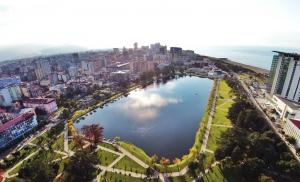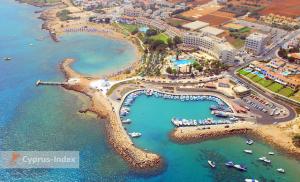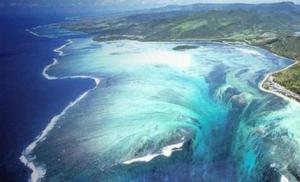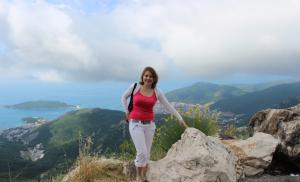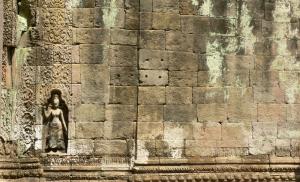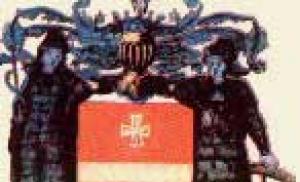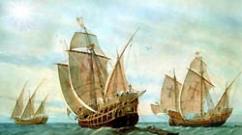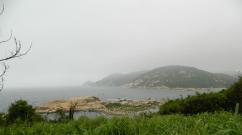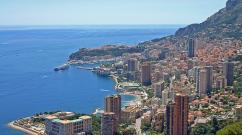City of God: Adventures of Russian tourists in the criminal areas of Caracas, Rio and Cape Town. Caracas
Soon there will be one less altar for co-wankers. The 21st century socialism that Chavez built never came to fruition. The opposition has already gained the upper hand in parliament, and soon there will be a referendum on the removal of the country's President Maduro, and, according to all forecasts, he will have to leave.
Today Venezuela is all about queues and wild crime. After the death of Hugo Chavez, the situation changed greatly for the worse. The crime rate has increased. Now you can’t just walk around the city with technology, jewelry, or even a good watch. In terms of the number of intentional murders, Venezuela has previously been at the top of all ratings, but today it claims first place. In the first 3 months of 2016, the number of murders in Venezuela increased by 47% compared to the same period in 2014. The number of kidnappings immediately increased by 170%. And these are just statistics from outside observers. One can only guess what passes by her.
Due to a lack of money, the current President Maduro has reduced spending on the police (now there is almost none), and gangs operate in different areas of the city. There are very few safe areas. People can be robbed and killed in the city center, in the subway, in the park - anywhere. Somehow the authorities control several blocks in the center, where government buildings are located, and blocks in wealthy areas. But there has long been no trust in the police (as well as in the National Guard). The attitude towards the army has also changed a lot. Previously, there was always respect, but after the events of 2014, everyone considers them executioners, they went against the people. Any wealthy Venezuelan has personal security.
This time I had to hire security too. Three years ago I rode freely in a regular car with a driver, walking around the slums. But today the car is armored and there are several guards. I go to the subway, go down to the station, and the security guard says: “You see, there isn’t a single policeman at the station today? That means they might kill you.” Passers-by on the street, seeing the camera, make scared eyes and recommend hiding it.
There are a lot of stories online about how diplomats were robbed, how tourists were kidnapped and ransom demanded. Everyone recommends that in the event of a robbery, not to resist, but to immediately give everything, then there will be a chance to stay alive. RIA Novosti recently wrote that in the city most of the criminal groups working against foreigners are coordinated from one center. “These groups include employees of airports, hotels, rental offices - everyone who comes into contact with visitors, so renting cars and showing money is very dangerous,” says a police source.
They can really kill. Caracas, the capital and most big city Venezuela, in 2015 was once again recognized as one of the most dangerous cities in the world. There were 119.87 murders per 100 thousand inhabitants. In general, data on the number of murders varies. Some sources write about 134, 160 and even 200 murders. The bloodiest month of 2016 for Caracas was June. During this month, about 400 people were killed in the city, according to El Nacional. The authorities do not publish official statistics on murders.
Today, Caracas is the most dangerous city in the world where there is no war.
My friend Oksana, who lived in the country for a year and a half, told me in more detail about the criminal situation in Venezuela, both in Caracas and in the provinces.
Security in Venezuela is a very sensitive topic; many foreigners do not pay enough attention to it. Or they didn’t pay attention until, for example, in 2014, they killed a German tourist right at the entrance to the Eurobuilding hotel (they were tracking him from the airport, presumably after seeing something valuable) and an Egyptian right at the exit from the airport. For me personally, it was a shock when my boyfriend, with whom we were driving around Caracas in a car, asked me to hide my iPhone, because, I quote, “motorizados will drive up, a gun through the window, if we don’t give it up, they’ll kill us.” It was wild for me. For Venezuelans, having a phone hidden in your underwear is a chore.
There is no scarier creature than a “motorisado” or “choro” - a bandit on a motorcycle (at one time, “Bera” motorcycles were sold cheaply under a preferential program). For any Venezuelan, the most terrifying sound is the sound of a returning motorcycle. On motorcycles, it is easy to surround the car you like in order to steal it or simply rob the driver and passengers. A motorcycle taxi driver can easily deliver clients during the day and rob and kill at night.
Motorcyclists do pose a danger: at best, they can steal something from you, just like in other countries Latin America, at worst - shoot. 
Even the locals don’t go into the slums, “barrios” - it’s dangerous, any stranger there is studied for “what to take.” It is believed that the birthplace of the punks, "malandros", is the state of Vargas (this is where the Caracas airport is), but after a landslide in 1999, when a huge number of residential buildings were destroyed, many local residents were resettled in other states and thus spread throughout Venezuela. But this is one of the versions.The truth is that Chavez's policies were aimed at cajoling the lower classes of society: they were given houses, monthly benefits, cars, etc. Everything to get votes in elections and popular support. Thus, it was not necessary to work: everything for life will be given anyway, and you can earn additional income by robbing people. In the last couple of years, the oil needle on which Chavez was holding on has failed, oil prices have fallen, and the country has become short of money. The result of this policy was a shortage of essential products, in fact, famine. As a direct consequence of this, crime has increased. No job will bring in as much money as criminal activity.

Kidnapping has become one of the most popular types of this activity. This could be a kidnapping express, a “carousel”, when criminals simply drive around the city and gather well-dressed people into the trunk of an SUV and then ask for a ransom according to the principle “Who’s your dad? Well, he’ll give you 10 thousand dollars.” Or a planned kidnapping: a person is studied what he has, where he lives, where he works, what kind of relatives he has... The ransom amount can be 100-200 thousand dollars. I have a friend who was kidnapped. It was a long time ago, really. They confused him with his cousin, kept him blindfolded for a week, finally told him they would kill him, took him out in a car, pushed him into the street and shot him in the air. Nowadays, as a rule, they are not left alive...

Hunger makes people more aggressive. Now they kill for a phone (they stole my phone, but asked for ransom; where is that poor locked iPhone now...), for a watch, for a package of groceries, for good shoes. I was personally robbed in Venezuela twice: the first time with a phone from a car, the second with a bag at the entrance to a hotel, but both times secretly and without weapons (the first was clearly based on a tip). My friend was robbed with a gun twice. Once they were having lunch with a group in a restaurant - armed people came in and collected all the phones from the table. The second time, he very wisely went for a walk at night in a resort village with a bag containing 30,000 bolivars (at that time it was still money). The notorious motorizados drove up, took off my bag, threatening me with a pistol - it’s good that they didn’t kill me (but they could have).

The crime situation now is such that people are afraid. They are afraid to have nice things, dress well, drive a nice car (cars are difficult, but that’s another story). Going out with a good watch, a phone, a gold chain: life-threatening. I remember how in the small village where we lived, our local driver came up to me and warned me that one young man should put away his Samsung watch (which is a smart watch, or something), because the hotel workers had already chatted all over village that he has them (the same village where my iPhone was stolen). It is very dangerous to drive a car outside the city in dark time days, it is deadly if the car breaks down. The modus operandi of modern robbers is to throw a stone or a branch onto the highway and light a fire to force the car to stop. The Puerto Cabello - Valencia highway is considered the most dangerous in this regard (it was there that Miss Venezuela Monica Speer was killed).

The main problem I see is that human life has no meaning for a criminal. Shooting a person is not a problem at all. Old man, woman, child. I'm not even talking about men. The first rule for a victim in any robbery is not to resist: then, perhaps, they will be left alive. Criminals are not shy about passers-by, cameras, or daylight. It seems that young people from the lower strata of society see some kind of romance in this. There are memes on the Internet about “You have a motorcycle and a gun, all the chicks love you.” This is easy money, easy money, impunity. The prison system is also terrible. As far as I understand, the prisoners themselves rule inside the prisons; there are not even guards there, so they perceive prison as an opportunity to lie low for a while and rest (this does not apply to political prisoners).
This police post was bombarded with grenades a couple of weeks ago. 
Now the situation in the country is such that working as a police officer is also dangerous. Policemen began to be killed, not only on duty, as a result of resistance, but also simply to rob. Recently, a policeman was killed in front of his children in order to take a bicycle.
Sometimes bandits raid police posts. While the authorities are in a panic trying to investigate the attack, even less attention is paid to ordinary robbers, and they can continue to engage in bloody gop-stop. This year alone, and in Greater Caracas alone, 104 security forces (police and guards) were killed.
Police with flasks on their backs. The main task of the police now is to control queues at stores to prevent looting, and also to protect rallies. I don't have enough strength for anything anymore. 
A policeman rides a motorcycle with a wad of money. There are only a few dollars in this pack. But even this picture is not very typical for Caracas. 
Any building should be behind a high fence; those who are richer also have an electric fence on top. Who is poorer - broken glass and barbed wire. There are always bars on the top floors of houses to prevent burglars from climbing in from the roof. 
An ordinary entrance to an ordinary house where the local “middle class” lives. There are bars, cameras and live wires everywhere. 
This is what an ordinary residential building looks like: everything is also covered in bars, lights around the perimeter, barbed wire... 
US Embassy fence 
Fence of the Russian Embassy) 
The embassy itself. I wanted to take a photo with a beautiful sign, but I couldn’t find it ( 

At the entrance to each establishment there must be a menu with prices, as well as warning signs: you cannot enter with weapons and you cannot smoke. 
Such signs should also be in public buildings in the most visible place. For example, this is the wall behind the reception desk in my hotel. 
Even in a restaurant, signs should hang in every room! 
Behind the scenes) Strange law. 
Chavez broadcasts from every iron. 
The center is quite clean, given the general poverty and collapsed economy. 
What's the best way to translate? Something like “Maduro was born in my heart”? In general, Chavez recommends Maduro. More precisely, Maduro uses the dead man for self-promotion, which does not really help him. 
Subway entrance. 
During rush hour it is almost impossible to board the train. 
People miss 5 trains just to get on board. 
There is a crush inside. 
A simple metro ticket costs 4 bolivars, about 25 kopecks. A round trip trip combined with a bus costs 12 bolivars (75 kopecks). A ticket for 10 trips is 2 rubles 25 kopecks, for 40 trips - 9 rubles. Why is it so cheap? Firstly, it’s all about the unofficial bolivar exchange rate. For 1 dollar on the black market you can buy 1000 bolivars. The official exchange rate within the country is one and a half times higher, and they generally try to sell 1 bolivar to foreigners for 10 cents. The difference is 100 times! That is, if the Venezuelan economy worked normally, a trip by metro would cost 25 rubles. And we shouldn’t forget that the state is trying to regulate prices for a number of goods and services. Therefore, the metro is almost free.
Huge queues and ground transport. Large buses run between districts. 
Minibuses run in a specific area. 


The main erogenous zone for Venezuelan fans is the gas station! Gasoline is really very cheap here. It costs about 4 rubles per liter. Previously it cost 2 rubles. 
Consider gas free. Is it good or is it bad? 
Coffee is sold on the street. 
Book collapse 
In order to make at least some money, people sell everything. 
Yoga in the center) 
Today, the main goal of any Venezuelan is to get something. They get bread, milk, medicine. There are no essential goods on sale at all. You won't even buy soap and milk. That’s why everyone walks the streets with bags and asks each other where they “threw away” things. 
The main differences from fraternal Cuba:
There is civilization in Venezuela! There is normal internet here good restaurants and hotels. In Caracas there is McDonald's and other international fast food. Here you can easily buy expensive alcohol, imported food, and rent a good car. But Cuba is calm and safe. But in Venezuela, taking advantage of the wealth is not so easy.
The first thing a tourist encounters is a poster warning him to change currency only in specially designated places! In Venezuela, the exchange rate is controlled by the state. Devaluation occurs every few years. It looks very funny - a ladder like this:

Of course, as I already said, there is a black market with a completely different rate. Three years ago, the exchange rate on the black market differed from the official one by 3 times. Today it is only one and a half, but over these three years the bolivar has depreciated three times.
Yes, yes, there is an enemy McDonald's here! 
A Big Mac costs 243 rubles, ice cream costs 103. 
There are also more expensive burgers. 
You can drink coffee for 52 rubles 44 kopecks, cappuccino and hot chocolate will cost a little more, 67 rubles 42 kopecks. 
At the same time, there are good restaurants in the city. True, there are very few people there. Not a single person came to my hotel restaurant (the best in the city) yesterday evening! 
Food for the rich: 
True luxury. No, not oysters, but bread! Bread is also not on sale; there are hellish queues for it. So it's a delicacy. And the oysters are all dead. I never found live oysters in three restaurants in Caracas. 
Steak 
There are quite ordinary (and not yet looted) malls in the city. This is one of the few places where you can walk without getting robbed. 
But there are almost no people. Only a few can afford to go to such stores. 

My hotel 
Empty restaurant 
street art 

Bolivar 
We'll continue tomorrow. 
Travel notes:
1.
They say Caracas is one of the most dangerous cities in the world. Innocent victims here are killed right on the streets, and even more so, God forbid you appear in the crowd with a camera or any other thing in your hands that shows your wealth. In the city, 40 people are killed every day, many of whom are foreigners. And it’s impossible to count how many people are simply robbed.
Similar intimidation from outside travel company and the guides did not add optimism to our visit to Caracas, but they did stir up interest. Therefore, at the first opportunity, we tested all this on our own skin. And this is what we found out.
At first, of course, we were afraid to stick our noses outside the bus and the hotel. But after talking with a representative (more precisely, a representative) of the host country, it turned out that the rumors about the danger of Caracas were excessively exaggerated. The 14-year-old Russian girl who met us at the airport said that she had been living in Caracas with her mother for 3 years, and was walking the streets alone.
But! You need to know where, when and in what form it is possible to appear, where it is undesirable, and where it is simply dangerous. Caracas consists of several areas - from real slums to European areas with luxury villas. If you go to poor areas, and even in good clothes, and even more so, with photographic equipment, you can really get hit in the face and literally be left in only your underpants. They're unlikely to kill, but they won't cause you any trouble.
At the same time, in rich areas you can be with almost a 100% guarantee of safety in any form and with any equipment. Even at night, although at night it is undesirable. It is also undesirable (although in principle possible) to shine and shine decorations, equipment, etc. in areas where the middle class lives. By the way, there are few such areas in Caracas - the middle class stratum makes up only 10-15% of the population. The rest are either very poor or very rich. It’s clear that there are a lot more poor people, and accordingly, there are a lot more shady neighborhoods too.
Therefore, basic precautions must be taken. But if you are accompanied by a local guide who knows the local nuances, then you can consider yourself practically safe. You should also take into account that information from local guides and travel company managers located somewhere in Russia (or another country) may differ. If you're going to be intimidated by people who don't live in Caracas, it makes sense to take this information with a grain of salt. Although with caution. If you want to learn more about safety, look for people on the ground.
As a result, we walked around Caracas even at night. We felt a little uneasy, but we understood that we were in a normal area. There were no incidents, although we behaved rather cheekily. During the daytime we were taken more and more, and more and more to tourist places, so there are few pictures, and they are without any artistic pretensions. Just sketches.
Well, in other cities of Venezuela this problem can be considered not at all. Although... if anyone is interested, I can give detailed instructions, how to get hit in the head and lose money, jewelry and photographic equipment, for example, in Moscow or St. Petersburg :)
Other materials from trips to Venezuela and Little Tibet for the project “Two drops. Journey for water" can be found on the company blog "Two Sticks".
Caracas is the capital of Venezuela. More than 3 million people live in the city, and together with the suburbs there are 4.5 million inhabitants. Venezuela itself has always been considered one of richest countries world due to large oil reserves. However, the citizens of this country have never lived richly due to high corruption and a handful of rich people who appropriate all the proceeds from oil sales.
The country's former president Hugo Chavez (died in 2013) tried to turn the situation around. He nationalized natural resources, reined in the rich and forced national oil-producing corporations to pay 84% of profits to the state treasury, compared to the previous 35%. With the proceeds, free hospitals, schools, universities were opened in the country, and state-owned factories and combines were built.
An example of concern for ordinary people during the time of Hugo Chavez was the fact that filling a full tank of a car at any gas station in Venezuela cost less than $1. This is not surprising, since the president himself was distinguished by complete selflessness. He transferred his salary to one of the universities as a scholarship for students, and lived only on a military pension.
In general, Hugo Chavez has significantly raised the standard of living in the country. There is no doubt about it. However, he was unable to overcome crime. Here, as an example, we can consider crime in Caracas, where the criminal environment is extremely numerous. But to understand the origins of the criminalization of society, you need to briefly familiarize yourself with the history of the state.
Venezuela was discovered in 1498 by Christopher Columbus. He was fascinated by the nature of these places, and after some time the Spaniards discovered a beautiful green valley in the mountains. They founded a settlement in it, which over time turned into the city of Caracas, located 15 km from the sea.
In the 18th century, settlers from Spain began to make huge profits from the coffee and cocoa trade. But the blacks, creoles and mestizos did not get rich. Therefore, the country was shaken by military coups and revolutions for 2 centuries. But as a result of this, the rich became even richer, and the poor became poor. By the end of the 20th century, the gap between these two segments of the population had reached catastrophic proportions. The most obvious division between the poor and the rich appeared in Caracas.
The modern prosperous city center is surrounded by areas of poor neighborhoods. They have no power. The poor do not pay taxes and do not pay public utilities. The police do not appear on the streets of such areas, and they are a breeding ground for crime. It is here that gangs arise that terrorize the capital.
Representatives of gangs operate mainly in wealthy areas. Therefore, you can be robbed and beaten right a few steps away from a fashionable hotel that has its own armed guards.
Hugo Chavez often said in his speeches that crime in Caracas is akin to the fifth column of the American Yankees. It is supported by local and Colombian rich people. However, not everything is so simple. Criminal gangs were the support of the president himself. In 2002, the military overthrew him and arrested him. Criminalized residents of poor areas came to the defense of the head of state. They armed themselves, surrounded the putschists and forced them to release Chavez.
There are many examples in history when a revolution is based on crime. And the social transformations that Hugo Chavez carried out in his country were also subject to this trend. As a result, in 2008 Caracas was recognized as the most criminal and dangerous city in the world. There were 130 murders per 100 thousand people, and according to unofficial data, 160 murders. Compared to 1998, the number of serious crimes increased by 68%.
Robberies on the streets became commonplace. The police did not recommend that people leave their houses after 18:00, and tourists with video cameras were warned that if they come up and demand it, then give it back immediately. Drug trafficking was also commonplace. Venezuela has become a transit point between Colombia and the United States. A dose of heroin could be bought on every corner in Caracas.
In 2009, 45 cases of kidnapping were recorded in the capital. In 2010, this figure increased to 134 cases. The kidnappers simply blocked the victims they liked while traveling in the car on the road, transferred them into their car and took them away in an unknown direction. They were released only after the ransom was handed over. Kidnappings were also widely practiced by police officers. A whole gang of such guardians of the law was arrested in the capital.
These days the situation has improved slightly. UN experts say that 20% of all crimes are committed by police. The authorities are trying to combat rampant crime. In this regard, a police reform program has been created. There is a special department supervising tourists. Its employees wear red berets. Mobile mobile police stations have appeared.
Every Christmas, to reduce the crime rate in Caracas, units are introduced into the city national guard to patrol the streets. This is due to the fact that on holidays citizens make a lot of purchases and carry large sums of money with them. Therefore, crime is intensifying.
At the same time, the paradox is that city residents are quite calm about the high level of crime. They are even proud that they have surpassed other Latin American cities in this indicator. Most Caracas residents simply live and enjoy life. Workers are not overworked. Lunch starts at noon, and then everyone waits until it's time for dinner.
However, everything flows, everything changes. During the time of Hugo Chavez, the unemployed received a good government benefit corresponding to 300 US dollars. And this is in a warm climate and bargain prices for fruits and vegetables. Therefore, 95% of Venezuelans quite sincerely considered themselves happy. The recorded level of happiness in this country exceeded that in Switzerland, Austria and Germany. But Venezuela has now become a political battleground, and the situation in the state has become tense and uncertain.
Today, buying a tourist package to almost any place on the planet is no more difficult than putting money on your phone, and you know popular vacation spots by heart even before the trip - friends in social networks We managed to tire ourselves with the views of Barcelona, Bali and everything else. That’s why the most interesting ideas seem to be trips to controversial places that smack of mystery, danger, or at least not boring.
Today we decided to dig through the forums of Russian solo travelers (primarily, of course, the Vinsky Forum) in search of useful tips and stories from criminal and rather dangerous tourist areas - Cape Town, Rio and Caracas. Actually, it was no coincidence that these criminal cities ended up in the material: the flow of tourists there (and therefore their stories from there) is quite abundant. But travelers who find themselves in hot spots in Somalia or in the lair of drug lords in Mexico either do not write reports or simply decide to stay.
Caracas, Venezuela
GENERAL
POPULATION
CRIME INDEX
SECURITY INDEX
KILLS ON
100,000 POPULATION
If television reports are to be believed, Venezuela appears to be a socialist paradise like Cuba. In fact, this country is very unsafe. Street robbers armed with guns and knives are preying on tourists throughout the city.
“The night before yesterday, the bus I was traveling in was shelled. They wanted to rob him, but the driver didn’t stop. Then they fired with large shot. It hit me in the leg with a ricochet - it was a scratch, but it bled heavily; in the hospital they then put in two stitches. And one girl was hit pretty hard in the leg, there was a lot of blood, although it didn’t seem to be anything serious either. Then I asked locals, soldiers and police, such cases happen here all the time.”
GEORGE KALMYKOV
“It’s easier to change money at the airport than in Caracas. Cars are being robbed by everyone. No need to drive at night. A tire puncture at night is most likely a trap. It is imperative to talk about the fact that you are Russian. And demand that the documents be returned. Carry the barrel in your sock, although it’s not so easy to buy now. First, let yourself be robbed, and only then take out the gun and shoot in the back (this is the advice of the local police). Everything valuable goes into socks.”
“And with a pistol they may even ask for a baseball cap. It's better to give it away."
GEORGE KALMYKOV
“Venezuela is different from other countries in many ways. Main feature- difference in dollar exchange rate. WITH plastic card an independent traveler pays three times more for everything. And the trip costs more than to the Swiss Alps or Cote d'Azur. Therefore, you have to travel with cash dollars for the entire trip. Professional raiders and the police are well aware of this, which creates additional danger.
I advise you to hide your money well. In belts, trouser waistbands, socks and other leggings. There are all sorts of leg bags - also a very useful thing. Plus, wearing long pants means you attract less attention.
The police often respond inadequately to large sums cash. Don't show them anywhere and never. In a country where drug trafficking is rampant, a person with five thousand dollars is perceived as having come to buy. And it doesn’t matter if you haven’t bought it yet, they can give you a lift. Not to mention even darker scenarios."

Rio de Janeiro, Brazil
GENERAL
POPULATION
CRIME INDEX
SECURITY INDEX
KILLS ON
100,000 POPULATION
In Rio de Janeiro, the main danger for travelers is gangs of juvenile favela residents who comb through tourist places looking for tourists. However, you should also stay away from the adult population of the slums - they will rob you and won’t bat an eyelid.

"Brazil - great country, probably the only one in the world where your worn-out flip-flops can be stolen, where educated people pick up newspapers on the streets to read them, where sports blacks with an open, cheerful smile will take away everything more or less valuable in the center at rush hour, if you turn a little not where the prices for consumer goods and hotels are completely fucked up.”
“I had one incident in nine days in Rio. It's nine o'clock in the evening and Avenida Atlantica is lit up. In the center there is a souvenir market. I walked out of the tavern in a happy mood and stared at the souvenirs for about 15 minutes. As I was already stomping along the sidewalk (there were tons of people around), I felt someone tightly squeeze my shoulder with their hand. Turning around, I saw the cadre, to whom I told him that I didn’t speak Portuguese. Frankly, I didn’t expect everything to happen like this, in front of all the honest people. He squeezed his shoulder again and, walking around in front, demonstrated a folding curved knife and pointed to his pockets. I was shocked by my smile, for some reason I actually started laughing, considering that I had 20 reais, a city map and a credit card in my pocket. He showed me a map of the city, but at that moment the Brazilians wandering nearby, one of whom was walking his dog, having assessed what was happening, suddenly headed towards us, expressing something very energetically to the expropriator. He threw the city map he had taken onto the sidewalk and retreated.”
“I was robbed on the penultimate day before flying to Russia right there, on central square near the cathedral - a crowd of guys (about six) about 15–20 years old with a dog ran up, tore out my backpack and camera, and even baited the dog into biting me, although I didn’t resist when I saw the dog. Everything happened in two or three seconds. But an elderly man ran to my aid, but he didn’t have time to help, but he took me to the bus stop and gave me money to get to the hotel.”
“I encountered crime only once, when early, at dawn, as usual, I went out to swim in the ocean. I got out of the water and three favela boys with knives were sitting next to my plastic bag with a T-shirt and slippers. They say: "Mister, mani." I answer them in pure Portuguese language: “Didn’t you just fall out of an oak tree? Get it out of your swimming trunks, or what?” They got angry and said: “Take off your watch then.” “Yes please,” I answer. And I hand over the old (I bought it in 1986, threw it away, imagine, only a couple of years ago) cheap plastic Casios. The guys swore dirty and went to look for another victim.”
“I kept my credit cards, documents and all the cash in a safe, and carried only a day and a half maximum with me. On Avenida Atlantica there was a traffic stop, on Copacabana they stole a Panama hat. At the same time, I wandered around everywhere for 25 days (including disadvantaged areas of Rio), very often alone, and everything turned out fine. True, sidelong glances still took place.”


“We arrived in Rio on May 25, and were robbed in broad daylight in the Santa Teresa area on the second day of our stay. The area is touristy, but there are favelas nearby. We reached the final stop on a tram, which, by the way, is accompanied by police officers, and way back We decided to do it on foot, since we saw enough people along the road. We had not walked far from the tram stop when two Afro-Brazilians approached and not very politely asked for our backpacks. I’m a fragile girl, I decided to give mine away right away, but my husband got it: he was threatened with a second knife.”
“I was once cut in Rio, I stood like a lion, against four, in the afternoon, at three o’clock in the afternoon in Copacabana (after the rain, as luck would have it, there were no people). Basically, Brazilians are cowards. They use knives easily, but they don’t know how to fight. They didn’t get a penny from me, I managed to defend my money and documents, but they slashed me with a knife.”
“I was returning home at four in the morning, went into a tiny diner to eat a sandwich and drink juice before going to bed, I was sitting and watching, three of these specific bulls were sitting drinking, yelling something so aggressively at those around them, they were just trying to get into trouble, one was coming up to me for something, starts asking standard blah-blah in mediocre English, I lied to him that I’m not at the port, I don’t speak English, he switched to someone else, went to the toilet, came back and hit one guy sitting there in the back with all his might, not Brazilian, but without continuation, there is a pause of 10-15 seconds, a healthy black man, a guy standing at the entrance to the eatery, fits in and begins to say something to the bull, the other two bulls are blown up, the black man runs, three behind him, I hear two clear pops of a shot , around the corner, I turn to the bartender, I tell him: “Call the police,” he has zero reaction, is silent.”
“We met a German in Rio, and his colleague, working with a Brazilian company, ran into the barrel of a gun while sitting in a taxi with the window open. After that I gave up business trips.”
“Sunday, three o'clock in the afternoon, the center of Rio - not a soul in the city. I’m standing, photographing another monument on the square, lowering the camera and seeing a face in front of me, a completely calm face of a guy of about 20 years old with cold eyes. My husband, who was about ten steps away from me at that moment, turned around and said: “Get away from him,” I managed to move back a little, and at that moment the guy grabbed the camera from my hands, and I reflexively grabbed my belt. The husband quickly jumped up and grabbed him with his hands. There was a struggle for some time, after which I snatched the camera from the weakened enemy. The robber turned away from his husband and slowly walked towards the glassed passage 15 meters away. Then the husband discovered that his glasses were broken, and the guy’s impudent slowness infuriated him, and he ran towards the passage after the robber, trying to kick him several times. The guy walked and walked, absolutely unperturbed, as if inviting people to follow him. The police saved us. About five policemen, who had come from nowhere, rushed into the passage at full gallop, and then a gang of 10-15 teenagers, apparently waiting for us there, ran down the passage from them.”

CARACAS, April 13 – RIA Novosti, Dmitry Znamensky. The first time a RIA Novosti correspondent came to Caracas was back in 2005. Even then, talk about the rapidly growing crime rates did not stop for a minute: those who greeted us warned that walking around Caracas was dangerous, and that documents and money should not be carried with you. Now, eight years later, there is no need for even a warning “not to walk around Caracas” - everything has changed so much for the worse.
Official data on the increase in crime and, above all, murders, to the credit of the Venezuelan authorities, are published regularly. Latest information in this regard, it resembles a military report: according to the Ministry of Internal Affairs, in 2012 the number of murders increased by 14%, exceeding 16 thousand. Per 100 thousand population, this figure is 54 murders.
But these data are also questioned by independent observers. Thus, the organization Observatorio Venezolano de Violencia published a report according to which almost 21.7 thousand murders were committed in Venezuela last year, or 73 murders for every 100 thousand inhabitants.
People started talking about an “epidemic of violence” in Venezuela in 2011, when the murder rate reached, according to unofficial data, 67 for every 100 thousand inhabitants. “What do you want? There is rampant crime in the country, any foreigner is a potential victim,” says Mauricio, an employee of a large hotel in Caracas.
It’s hard to disagree with him: visitors to the country cannot feel safe either in a taxi or in a hotel room, not to mention a simple walk. In recent years, more than one case of robberies has been recorded in Caracas directly in hotel rooms; it makes no sense to talk about selected rental cars.
“They say we’re byaki-buki...”
The main feature of criminals who attack foreigners and citizens of Venezuela is cruelty that is inappropriate to the situation. In case of the slightest disobedience, the chance of getting shot is close to 100%, so the main advice from the authorities for foreign tourists is complete submission to the criminals.
Even diplomatic status is no guarantee that there will be no problems with bandits. Thus, in 2012, robbers “bothered” the Mexican ambassador twice: first, he and his wife were kidnapped and then released, possibly after paying a ransom, then the residence was robbed. At the end of 2011, unknown persons attacked the Chilean consul, wounded him, beat him and robbed him.
“You see, they don’t care, they don’t understand what diplomatic status is, for them any foreigner is a source of income, and they don’t have time to think about any diplomatic scandals,” says policeman Eduardo, a native resident of Caracas, guarding the territory near the embassy of one European country. At the same time, he asks not to take photographs and not to indicate his last name.
What kind of people are we talking about? Yes, about the same ones that came out to rallies of thousands of supporters of presidential candidate Nicolas Maduro. “They are the basis of the regime, they are socially close, everything is allowed to them, and when such instructions are given, it is difficult to expect the same police to act to catch criminals,” says local taxi driver Miguel, who does not consider himself a supporter of Chavez’s successor.
Before the elections, the number of police on the streets of Caracas exceeds all reasonable limits, but the feeling of danger does not decrease. A RIA Novosti correspondent visited the burial site of Chavez. Even there, the feeling of a potential threat did not recede for a minute, despite the police next to the huge queue at the grave of the “comandante”.
“Crime is a consequence of internal factors, but we cannot blame only Chavez, who has done so much for our people,” teacher Ricardo, standing in a crowded line at the Museum of the Revolution, clearly supports the government’s course. He came to Caracas from the city of Barquisimeto, where, according to him, there is also a problem with crime, but the realities of Caracas for him lie not in danger, but in the mystery of touch.
There is no way for a foreigner to get there
The barrios (poor neighborhoods) of Caracas are a topic for a separate report. Once, by mistake, a RIA Novosti correspondent drove there in the evening by car along with several other Russians. The only thing that saved us was that there was a police post in the way of the car, which simply did not allow us to drive further, indicating the right direction.
A foreigner can only appear there accompanied by local resident with authority. Otherwise, there is a very high probability of being robbed and killed.
How many people live in these unauthorized buildings is not known by any statistics, but judging by the geometric progression with which the barrios are growing, we can talk about millions of people. It is approximately known that more than a million people live in one of the largest barrios, Petare, the same situation in the barrio of January 23, where Chavez himself rested. There is talk of hundreds of thousands of Colombians who moved here in years past and now control the drug trade.
“They all need to eat, live on something, but what can they do, and, most importantly, what does the government give them to do? It gives them social assistance and a little money, and then whatever you want!” - taxi driver Miguel continues his thought. Although initially the roots of “evil” do not lie in Chavez, because favelas began to appear in the 50s of the last century, and their heyday came in the wake of the oil boom in Venezuela. However, if earlier the authorities tried to fight the spread of favelas, under Chavez their residents received complete carte blanche and funding.
Social assistance is not very big in terms of dollars, but at the very least it allows you not to work. “And if necessary, you can always go rob and kill, it’s a big problem,” Miguel bitterly ironizes.
Many experts agree that it was Chavez’s policy of supporting unemployed favela residents that became the catalyst for the increase in crime. At the same time, no one, not even Chavez’s ardent opponents, denies that huge amounts of money were spent on social programs, primarily through the nationalization of the oil company PDVSA. Only the result of these efforts has not yet changed the crime situation in the country for the better.
Overtake Honduras
Traditionally, the countries in Central America, primarily Honduras, have been considered the most disadvantaged in the region from a security point of view. In 2012, the number of murders there exceeded 85 for every 100 thousand inhabitants. But Honduras has never been an oil-producing country, and the standard of living there has always been very low. “At this rate, we will soon catch up with Honduras, 85 corpses per 100 thousand - wait a year or two if nothing changes,” taxi driver Miguel is skeptical.
His business is no less threatened by crime than foreigners: visitors are often robbed in taxis, and then the driver has considerable problems if the foreigner complains to the police. “What’s the point in complaining? The corruption is such that, most likely, the district police not only know the bandits, but also get a share from them, and then they extort me, saying that I’m the spotter,” says the driver.
As RIA Novosti found out on condition of anonymity from the city police, in Caracas, indeed, most of the criminal groups working against foreigners are coordinated from one center. “These groups include employees of airports, hotels, rental offices - everyone who has contact with visitors, so renting cars and showing money is very dangerous,” says the source.
An example of this is the relatively recent story of a film crew from one of the domestic TV channels, who were robbed and left without documents, money, equipment and a car literally 100 meters from one of the best hotels in Caracas. Fortunately, the journalists themselves were not injured.
